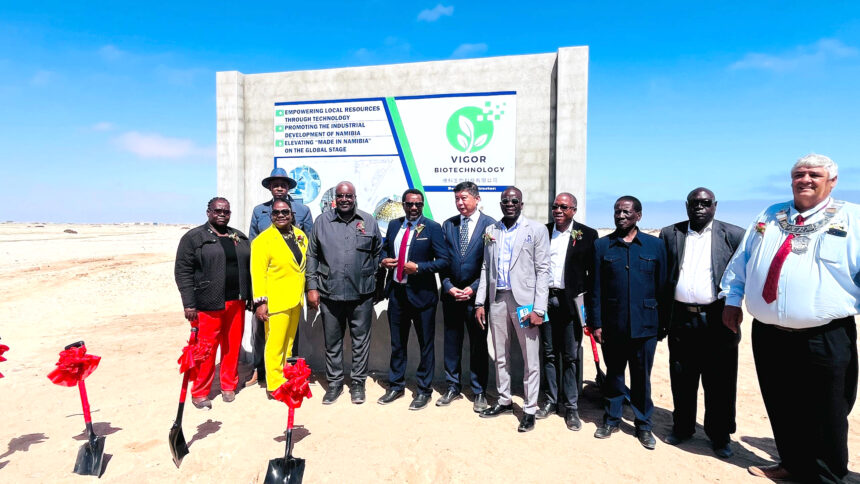HENTIES BAY – A multi-million-dollar project that is set to be a long-term solution for Namibia’s growing seal population, is set to make its entry at the coastal town of Henties Bay.
The landmark biotechnology development valued at over N$250 million is set to transform the town, offering job-creation and a long-term solution to the sustainable management of Namibia’s growing seal population. The initiative, spearheaded by Vigor Biotechnology, will be rolled out in three phases, starting with the construction of a seal oil and nut extraction factory.
It will include housing units and office infrastructure for employees.
This is the second seal factory which will be built at the town. The current seal factory has been experiencing challenges due to ownership changes, as well as penetrating international markets due to pressure from international animal rights’ groups.
Albertus Diedericks, general manager of the company, said the first phase will be constructed on five hectares of the 25-hectare plot secured in the town.
The construction of the facility is expected to kick off at the end of this month. “We are going to harvest seals and produce raw oil as well as fish feed from the waste product. That’s where the biotechnology element comes in – we’ll use it to produce soft gel Omega-3 capsules. The nut section will focus on creams and health supplements. We aim to start testing production by next year”, he enthused.
Diedericks added that the factory will process about 400 seals per day once fully-operational.
“We will start with the seal and nut factories, then move on to build the oil refinery and laboratory. The final phase will be a leather production facility, using seal skins. It’s a comprehensive approach to value-addition and sustainability,” he added.
The project has gained full government backing, with top-level endorsement from key ministries.
Meanwhile, the Parliamentary Standing Committee on Natural Resources has proposed increasing Namibia’s annual seal-harvesting quotas from 50 000 to 200 000 seals to control the growing seal population, which is impacting fish stocks.
Currently, Namibia has an unused seal hunting quota due to limited markets, leading to population growth. To improve quota utilisation, the committee suggested extending the harvesting season and promoting local seal meat consumption.
Speaking at the groundbreaking ceremony, Agriculture, Fisheries, Water and Land Reform minister Mac-Albert Hengari said the investment is a reflection of what is possible when government and the private sector work in unison.
“When we find the public and private sectors speaking in one voice, you know things are happening.
This initiative is timely, and has the full support of government – from the President all the way down. The time for speeches is over. We are here to work,” the fisheries minister said.
Hengari highlighted the impor tance of including Namibians as active players.
“We can no longer afford to be onlookers while our resources are being exploited by others. Namibians must be meaningful participants – as owners and workers. If you do that and are good corporate citizens who pay your taxes, you will always have our support,” he noted.
Deputy Prime Minister Natangwe Ithete officially launched the construction of the facility, describing it as a visionary approach to economic development.
“This facility will produce high-value seal and nut oil rich in Omega-3 fatty acids, widely used in pharmaceuticals and cosmetics.
Today marks the beginning of a new chapter – one that brings together science, sustainability and socio-economic growth,” he said. Ithete observed that the project aligns with Namibia’s developmental goals under Vision 2030, NDP5 and the soon-to-be-finalised NDP6.
“By responsibly utilising Namibia’s abundant seal population, we are turning an environmental management challenge into an economic opportunity. This development is not just about jobs – it’s about livelihoods. It’s about empowering youth and women, building skills, and enabling local SMEs to participate meaningfully,” he stated.
He then urged Vigor Biotechnology to adhere to strict environmental and labour standards, stating that their approach must always be conservation-driven, guided by scientific data and monitored quotas. “We must ensure ecological balance while benefiting from the resource,” he appealed.
-edeklerk@nepc.com.na



